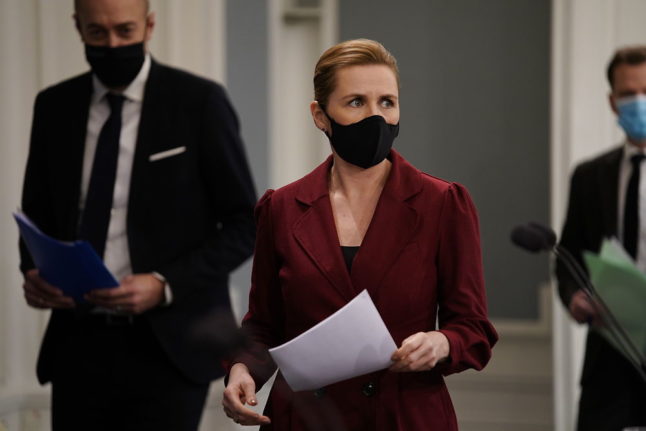All shopping centres and shopping arcades will close from Thursday December 17th, while businesses such as hairdressers, physiotherapists and driving schools will close from Monday December 21st.
All retail businesses, with the exception of supermarkets, pharmacies and other stores which sell daily essentials, will be closed from December 25th until January 3rd.
In announcing the restrictions, Frederiksen said that Denmark would be “practically closed down” from December 25th until January 3rd. Further compensation packages will be negotiated for businesses, Frederiksen said.
“We are doing this because an epidemic that runs out of control would have great consequences and bigger consequences than closing down now will have,” she said.
All school children will be sent home from December 21st, the prime minister also confirmed. Under the current partial lockdown, schools are still open for children up to fourth grade.
“We have reached risk level four in the entire country, the second-highest level. That means authorities believe there is widespread outbreak in society,” Frederiksen said.
Denmark uses a scale level of 1-5 to appraise the seriousness of the current Covid-19 situation in each of its five administrative healthcare regions. Each of those five reasons is now at level four.
The highest level, level five, reflects uncontrolled infection spread and a risk that hospital capacity will be exceeded.
Health minister Magnus Heunicke said at the briefing that 1,808 health sector personnel had contracted the coronavirus during the last week. That is an increase of 70 percent, according to Heunicke.
“The infection is now everywhere in society and it is at our hospitals. But it is important to say that the health service is still open,” the minister said.
The Danish Health Authority has no plans at the current time to recommend travel restrictions within Denmark, the authority’s director Søren Brostrøm said.
“That is not because we are not worried, but because we have very clear and precise recommendations with regard to social contact,” Brostrøm said.
Those recommendations are to see a maximum of 10 people socially at any one time, and not to have any form of social contact with more than 10 people.
Frederiksen called the current coronavirus situation “very serious”, adding that just under half of Denmark's Covid-19 hospital beds are now in use.
3,692 positive tests for Covid-19 were registered by the State Serum Institute on Wednesday, the highest number recorded during the pandemic. The number of hospitalisations increased significantly by 54, taking the total number to 493.
During the spring wave of the virus, the number of Covid-19 inpatients peaked at 535 on April 1st.
14 deaths with Covid-19 were also registered on Wednesday, the highest daily figure since May.
READ ALSO: WHO warns Europe of Covid-19 'resurgence' and urges families to wear face masks at Christmas



 Please whitelist us to continue reading.
Please whitelist us to continue reading.
Member comments